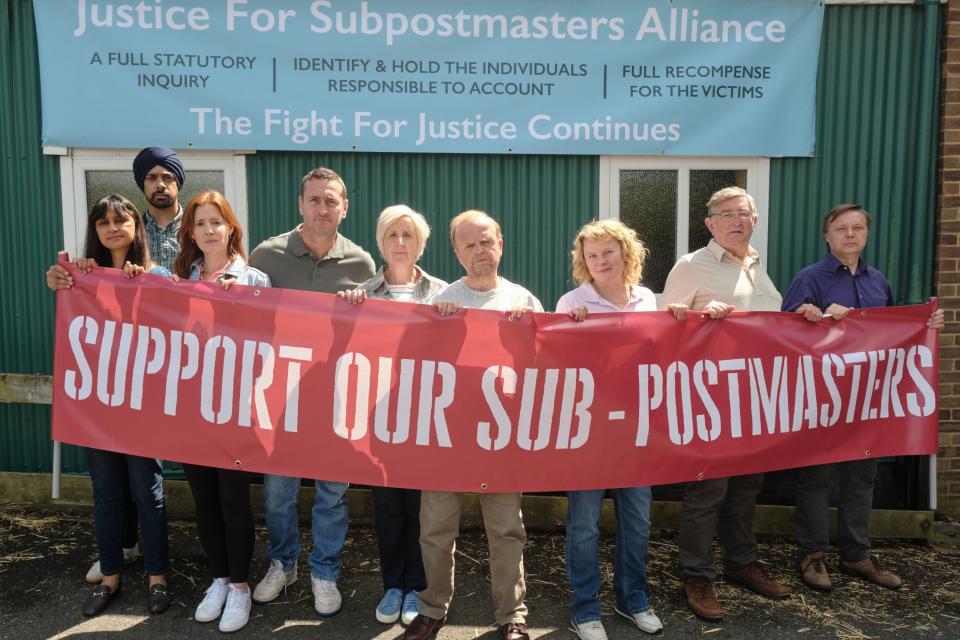Mr Bates vs the Post Office, review: you will be left seething by the sense of injustice

The Post Office Horizon scandal presents the dramatist with fiendish hurdles. The timescale is vast, the cast list of victims is innumerable, the legal landscape is as befogged as Jarndyce vs Jarndyce. Also, the villain is a computer terminal that clunks and blinks and never says a word.
And yet the story is also an open goal. Rarely in the legal history of blameless Davids going into battle with bullying Goliaths has a just cause come up against such a manifestly evil enemy. To load the dice even more, this Goliath simpers in a dog collar.
Mr Bates vs the Post Office (ITV1) establishes its moral position in the opening frames as Alan Bates (Toby Jones) and his other half, Suzanne (Julie Hesmondhalgh), are turfed out of their north Wales sub post office by big glowering men who arrive in a cruel fleet of black saloons that may as well be Panzer tanks.
The drama positions Bates as a caped crusader who, tirelessly over many years, simply refuses to let a corporate bully get away with insisting that its Horizon accounting system works and hundreds of sub-postmasters are therefore thieves. Jones, all cheer and steel, is simply perfect as the little man who proves undefeatable.

Indeed, the many familiar faces all feel ideally cast, from Monica Dolan as Jo Hamilton, whose plain-as-a-pikestaff decency was weaponised against her, to Lia Williams as Post Office Ltd’s Paula Vennells. At a guess, the CEO, CBE and former priest will scarcely be able to show her face in public after this merciless pummelling. Even former Cabinet Minister Nadhim Zahawi convinces as himself, getting het up on a select committee.
To mark a crooked path through the complexities, Gwyneth Hughes festoons her four-part script with flags and signposts. Some – over-helpfully – explain what to think and feel. “The more of you people I meet,” says Ian Hart’s forensic accountant, bursting into tears in the second episode, “the less I understand how you’re all still standing.”
It’s never subtle. While illness and depression, self-harm and suicide, plus a violent robbery, afflict the sub-postmasters, the Post Office’s glassy head office is basically the Death Star. Bates fights the good fight from a white house in a north Wales valley that shimmers like Eden.
But fuelled by righteous rage and sheer incredulity at a corporate malfeasance that can never be fully explained, it’s undeniably powerful and finally redemptive. “We just cling to a notion, don’t we,” someone says, “that people can’t be that bad.” I’ve rarely felt more manipulated by a drama, and rarely resented it less.


